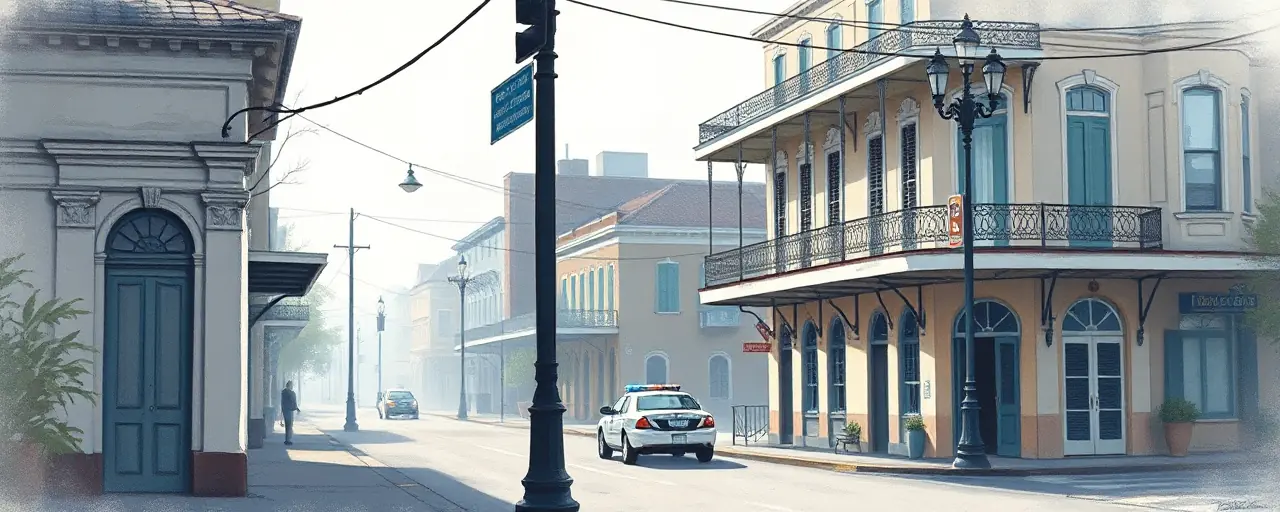A Bust in the Seventh District
In a quiet corner of New Orleans, the Seventh Police District became the scene of a significant law enforcement operation this week. Henry Mitchell, 25, and Jaylan Washington, 29, both former residents of the city, admitted their guilt on April 1, 2025, before U.S. District Judge Greg G. Guidry. The charges? A laundry list of drug trafficking and firearm offenses that could land them behind bars for decades. It’s a story that starts with citizen complaints, winds through the streets, and ends with a courtroom confession.
The FBI’s Violent Crime Task Force, working alongside New Orleans police, swooped in after watching the pair openly peddle drugs. A search turned up marijuana, fentanyl, tapentadol, tramadol, and a chilling bonus: firearms fitted with Glock switches, devices that turn pistols into machine guns. For locals tired of the noise and danger, it’s a small victory, but one that raises bigger questions about drugs, guns, and safety in the city.
The Charges and What’s at Stake
Mitchell and Washington face a combined slew of charges, from conspiring to distribute controlled substances to possessing illegal weapons as convicted felons. Each drug-related count carries a potential 20-year sentence and fines up to $1 million, while the firearm charges tack on up to 15 years for felon-in-possession violations and 10 years for the machine guns. Come July 8, 2025, Judge Guidry will decide their fate, with both men detained until then. The hefty penalties reflect a system aiming to crack down hard on those mixing drugs and firepower.
Court filings paint a vivid picture. The duo’s operation wasn’t subtle; they worked in plain sight until complaints piled up. Officers found not just drugs but evidence of a deeper problem: prior felony convictions for both, making their gun possession a federal offense. The discovery of Glock switches, cheap add-ons that make weapons far deadlier, underscores a growing trend that’s got lawmakers and police on edge nationwide.
A City Caught in the Crosshairs
New Orleans has long wrestled with drug networks, its port city status and economic struggles creating fertile ground for trafficking. Historically, heroin ruled the streets, often tied to street gangs in public housing. Today, synthetic opioids like fentanyl and lesser-known drugs like tapentadol are surging, fueled by online sales and prescription scams. Recent months saw over 13,000 tapentadol pills seized in the city, a sign of how fast these networks adapt. For residents, it’s a familiar cycle of disruption and resilience, with violence often trailing close behind.
The fentanyl crisis, meanwhile, keeps tightening its grip across the U.S. Overdose deaths tied to the drug have soared, with places like Oregon reporting a fourfold jump between 2020 and 2022. Mixing it with other substances has made it deadlier still, catching users off guard. Law enforcement’s response, including this bust, fits into a broader push to choke off supply lines, but the human toll keeps climbing. Advocates for harm reduction point to naloxone and education as lifelines, while others argue for tougher sentences to deter traffickers.
Guns, Switches, and a Federal Fix
Those Glock switches aren’t just a New Orleans problem. Across the country, these devices have exploded in popularity, recoveries spiking nearly eightfold from 2019 to 2023. They’re cheap, easy to get online or print at home, and turn a handgun into something that can unload 1,200 rounds a minute. Half the states have banned them, and federal law already bars civilian machine guns made after 1986. Yet, enforcement lags as DIY gun mods and ghost guns flood the streets, leaving police scrambling to keep up.
This case ties into Project Safe Neighborhoods, a federal initiative launched in 2001 to cut violent crime. By pooling resources and zeroing in on hotspots, it’s notched real wins, like drops in gun homicides in cities that lean into it hard. Supporters say its blend of enforcement and community outreach works; skeptics note results vary, depending on how well it’s rolled out. Here, the FBI and local cops used it to target Mitchell and Washington, banking on stiff penalties to send a message.
What Happens Next
Come July, the sentencing will close one chapter of this saga, but the ripple effects linger. For Mitchell and Washington, decades in prison loom large, their prior records likely tipping the scales against leniency. Sentencing data hints at wiggle room, though, with plea deals and judicial discretion sometimes softening the blow. Studies show disparities persist, too, with Black defendants often drawing harsher terms for drug and gun crimes, a pattern rooted in decades of uneven policy. How Guidry rules could echo beyond these two.
For New Orleans, it’s another skirmish in a long fight. The drugs keep coming, the guns keep firing, and the community keeps bearing the cost. Project Safe Neighborhoods offers a playbook, but it’s no silver bullet. Residents want safer streets, not just headlines, and that means tackling root causes, from addiction to poverty. As the city watches this case unfold, the hope is it’s a step toward something lasting, not just another bust fading into the noise.
